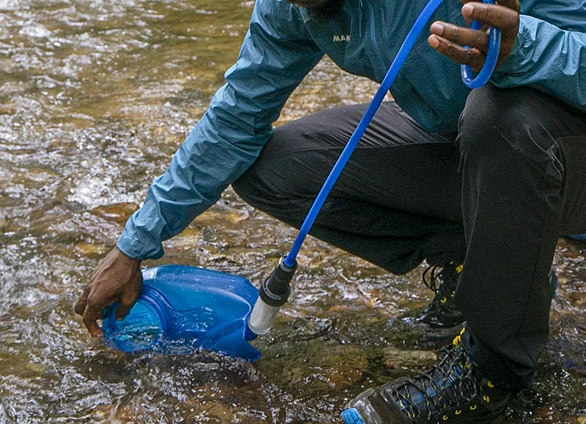When sourcing drinking water in the great outdoors it can pay to take no chances, and a new line of bottles co-developed by CamelBak and Lifestraw is designed to keep risk of contamination to a minimum. The drinking vessels pack two lots of filtering tech into the one receptacle, leaving parasites, bacteria and toxins little chance to make their way out the other side.
The newly launched line of bottles consists of 20-oz and 32-oz standard bottles, a 32-oz vacuum insulated stainless steel bottle and a 2-liter (68-oz) bladder.

As users draw water from these bottles it first passes through Lifestraw's hollow fiber membrane that collects 99.99 percent of bacteria, parasites and microplastics, before making its way up to the ion exchange filter, which collects lead, chlorine, chemicals, and other tidbits that might affect taste and color. It then passes out of CamelBak's trademark Eddy+Straw cap that is spill-proof when opened and leak-proof when closed, offering a clear and steady stream of refreshing drinking water.
The standard bottles are made from 50 percent recycled materials and are free of BPA, BPS and BPF, while the stainless steel version is claimed to keep water cold for up to 30 hours. The Crux Reservoir does have one point of difference, in that instead of the ion exchange filter it uses LifeStraw's Activated Carbon filter to removed undesirable chemicals, capturing them inside tiny pores between carbon atoms.

Pricing starts at US$45 for the 20-oz bottle, while the 32-oz version is available for $50. The insulated stainless steel version will cost you $70, with the 2-liter bladder rounding out the collection at $69. You can see more detail on the design in the video below.
Product page: CamelBak




